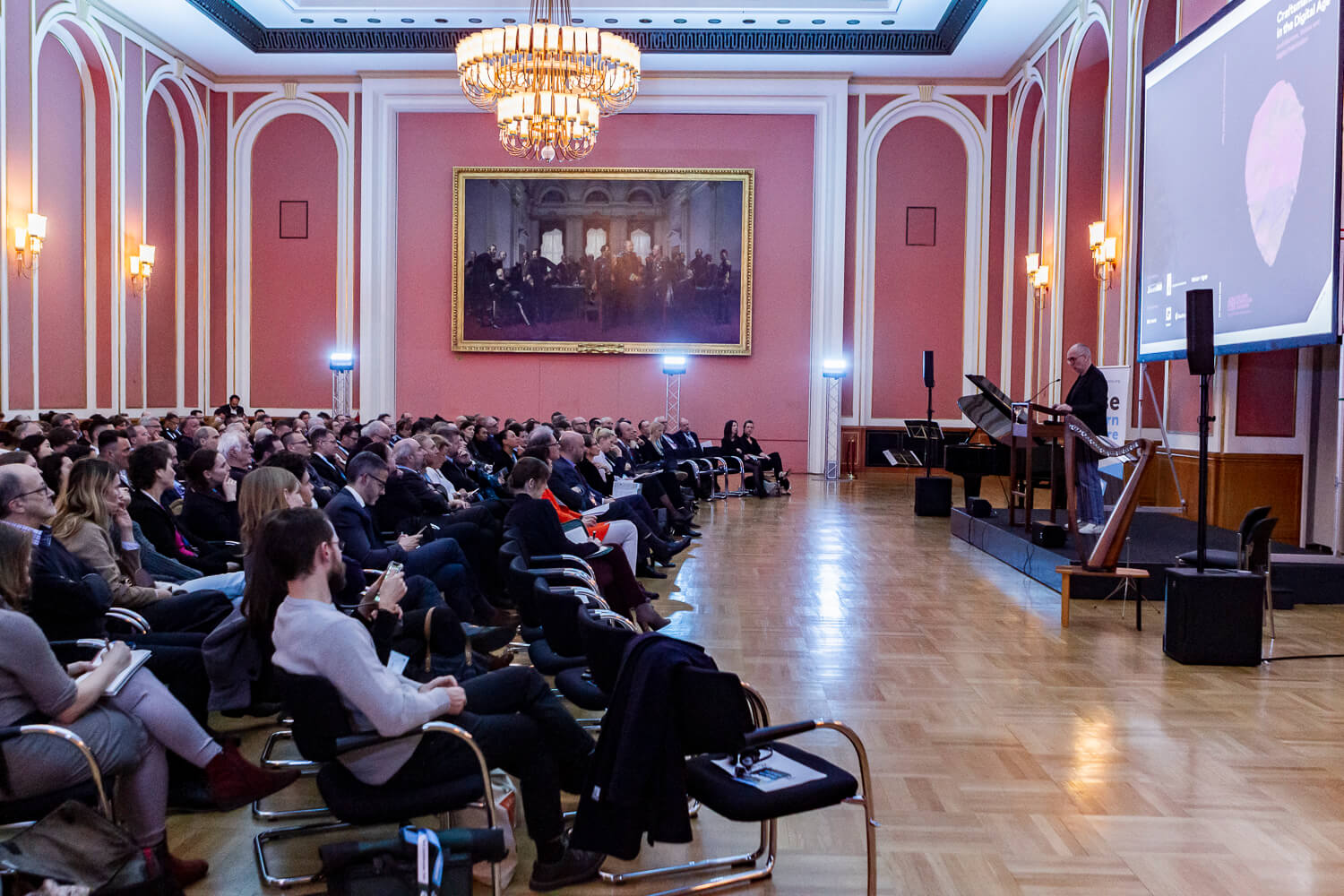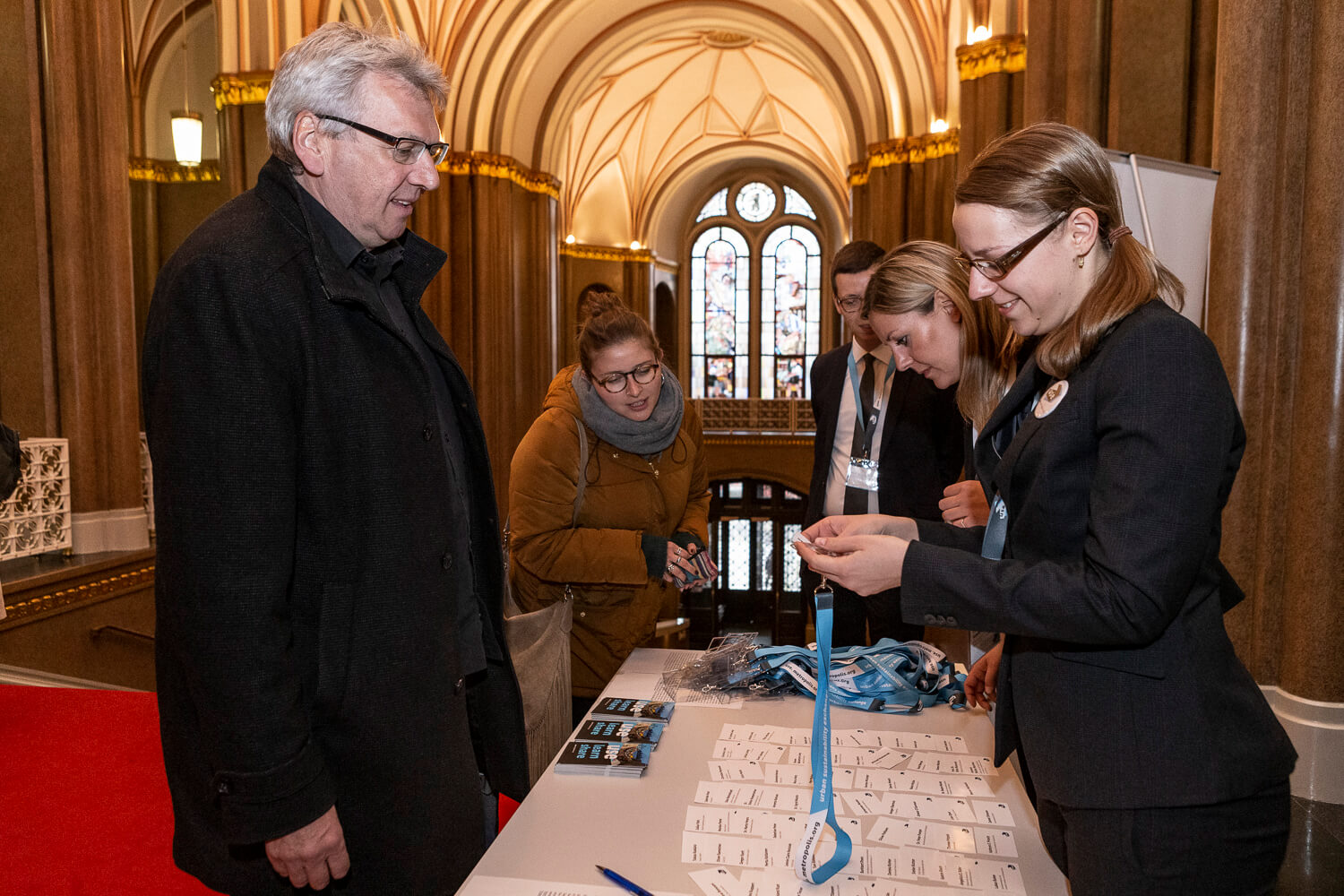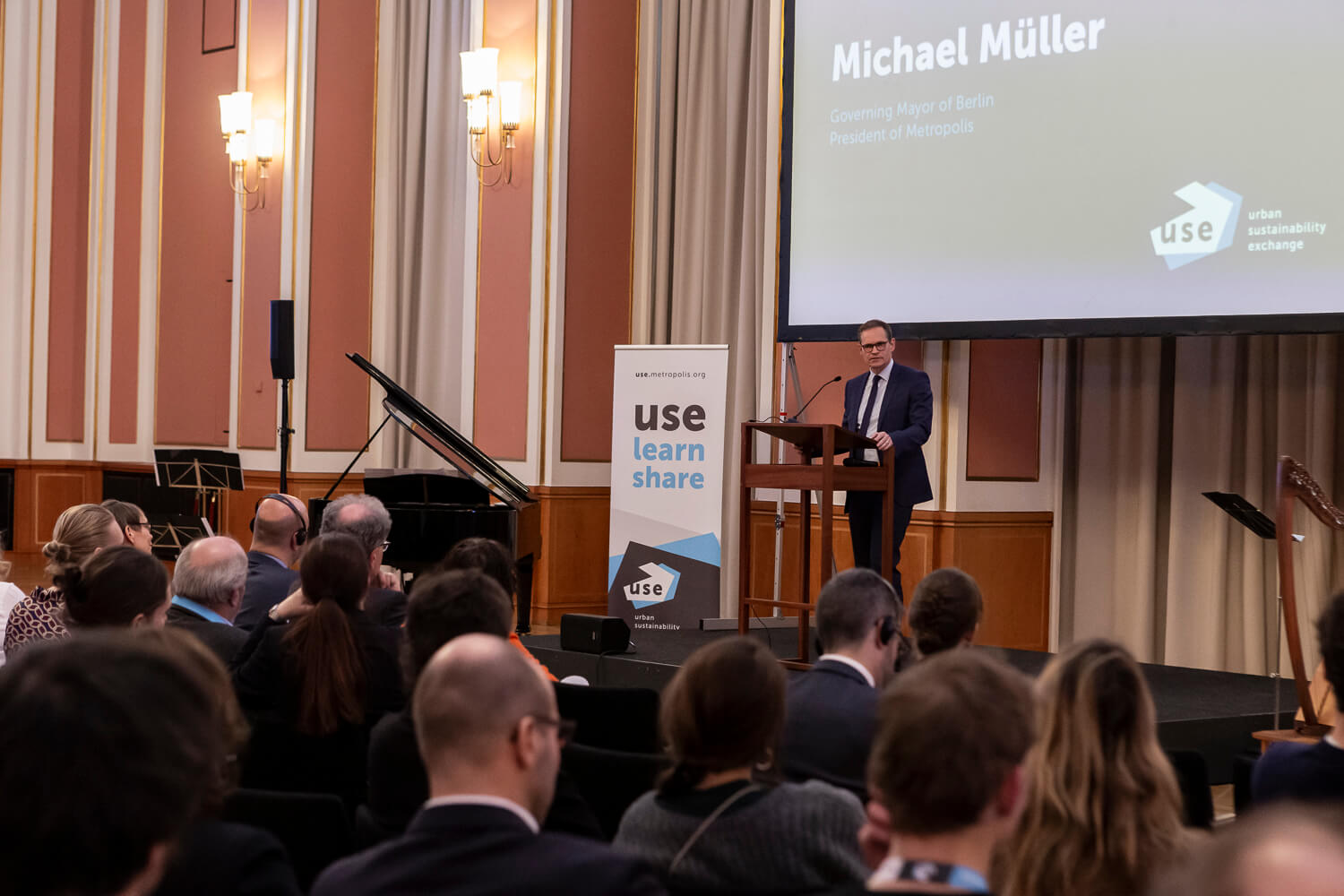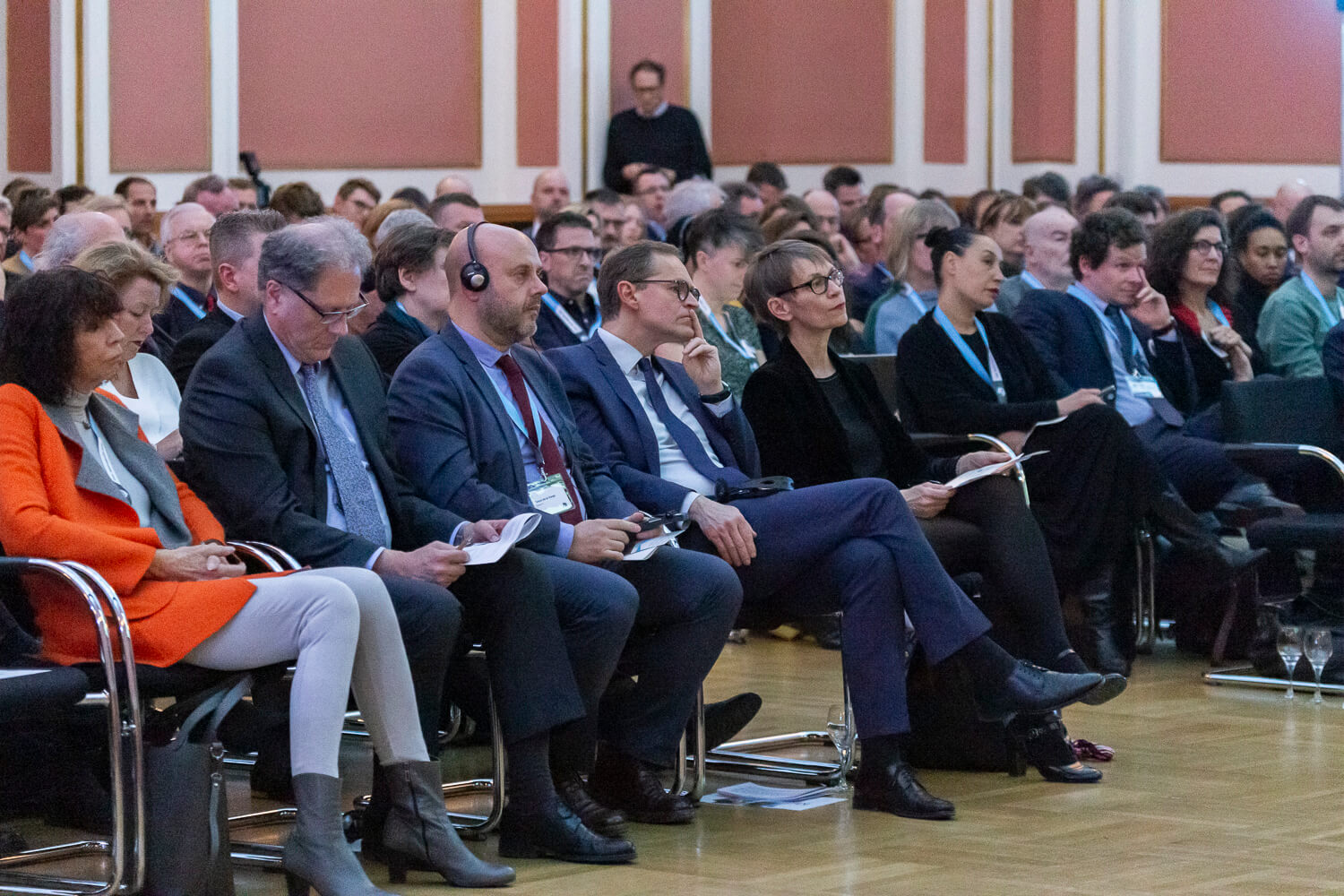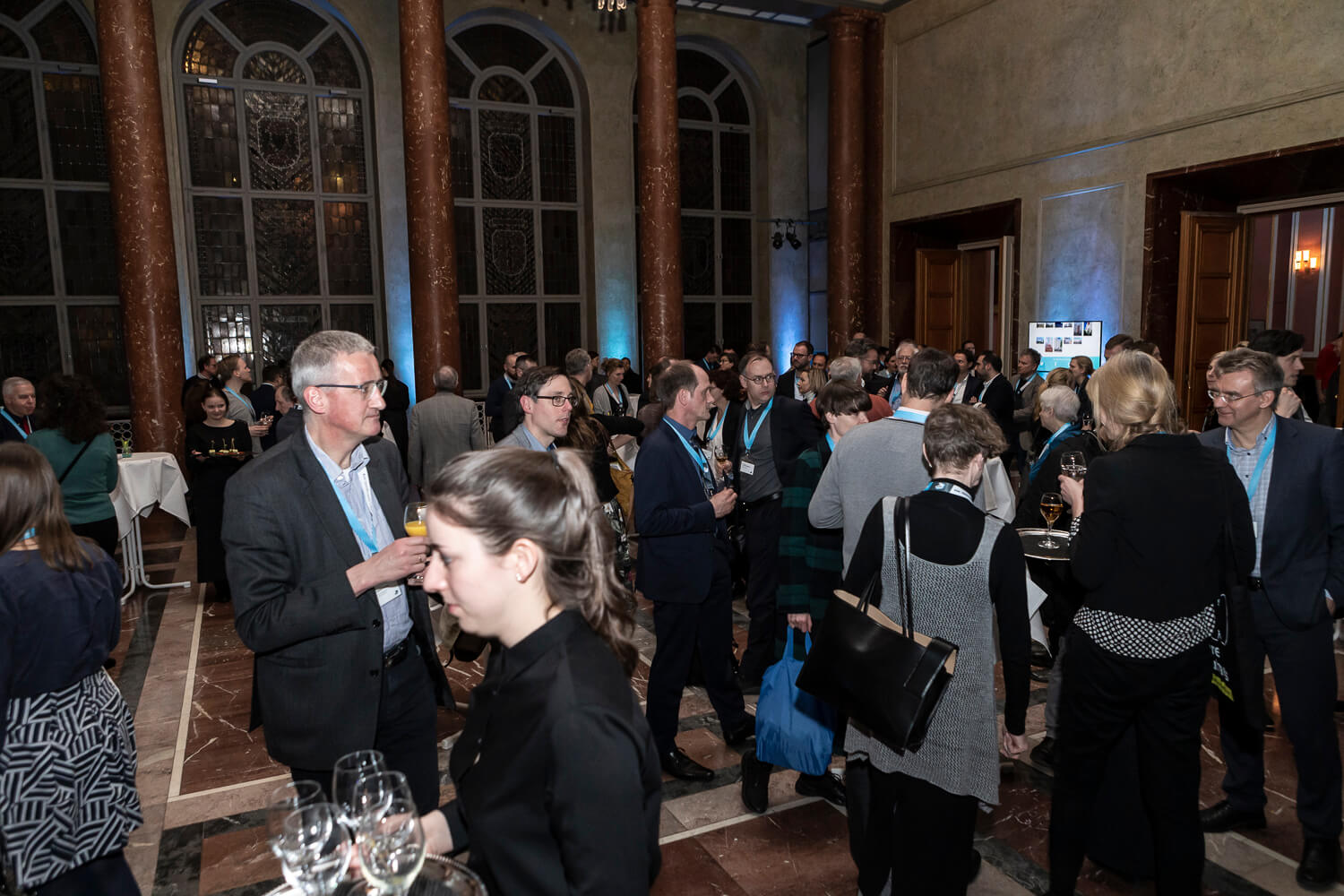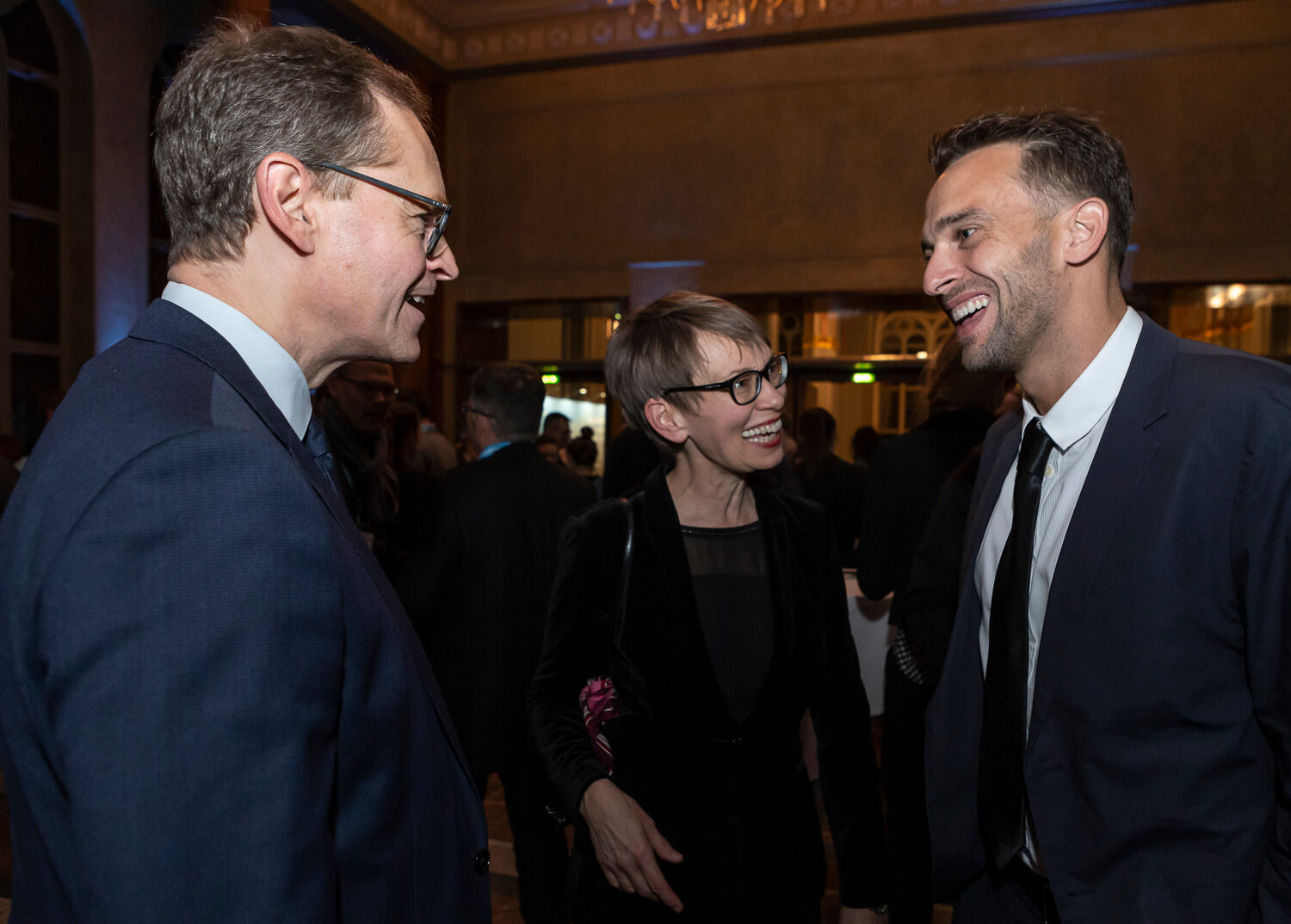The use platform does not only connect citymakers in the digital space. Around 300 local and international participants met at the first networking event “use. learn. share” held on March, 6th at Berlin city hall. Inspirational and practical solutions for sustainable urban development were presented by a diverse range of speakers and use.community members from Berlin, Sydney, Sao Paulo and Barcelona.
International networking at Berlin city hall
The event’s opening address was given by the Governing Mayor of Berlin and Metropolis President, Michael Müller. He emphasized the necessity for cities to take a seat at the international negotiating table and to learn from and with each other. Mr Müller acknowledged the role of Metropolis as a “voice of cities”, a place where all mayors can meet and discuss common themes and encourage them to participate in the use platform to facilitate a continuous exchange between stakeholders and citymakers, beyond conferences and events.
Making the SDGs meaningful
Following this introduction, Prof. Paul James from the Institute for Culture and Society at Western Sydney University and use academic advisor described cities as unique but facing global challenges. “A global community is now looking at cities. Cities are working on projects that are making differences in people’s life.” The use platform is bringing people together across time and space and provides curated, useful, relevant content that connects the Sustainable Development Goals in a way that makes them real and meaningful to local citymakers.
Insights from the use.community
Speakers and use community members from different fields shared innovative solutions from their own city or field of work. Hans-Jürgen Commerell from Aedes Network Campus Berlin accredited knowledge exchange through cross-sectoral discussion as a key driver for success. Prof. Vanessa Miriam Carlow from the Institute for Sustainable Urbanism at Technical University Braunschweig presented analysis, planning and decision-making tools relying on agent-based modelling, for example, the iscor eye-tracking spatial experiences. Following this presentation, Dr. Julius Menge from Berlin Senate Department for the Environment, Transport and Climate Protection pledged for more trust and a common understanding by actors in the field of mobility.
Prof. Eike Roswag-Klinge from the Natural Building Lab at Technical University Berlin introduced participants to self-paced learning processes and dialogical working in the urban design field. Finally, Gabriel Bello Barros provided participants with an overview of urban challenges in Brazilian cities and provided an overview on how municipalities are working to overcome those challenges. Brazilian cities are demanding bundled learning services to learn from the innovation ecosystem and civil society, for example, Rio Operations Center.
The Metropolis Secretary General Octavi de la Varga closed the official presentation by concluding “we need cities to make a better future” and called on participants to invest in cities and to play an active role in their co-creation and co-development. Barbara Berninger, Director of the Metropolis president‘s office and Head of the division EU and International Affairs at the Berlin Senate Department for the Environment, Transport and Climate Protection, closed up the event and invited all participants to attend the networking conversations.
On twitter @use_platform you can follow some statements of the evening via live tweets.
